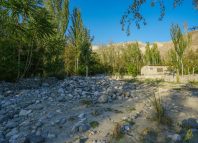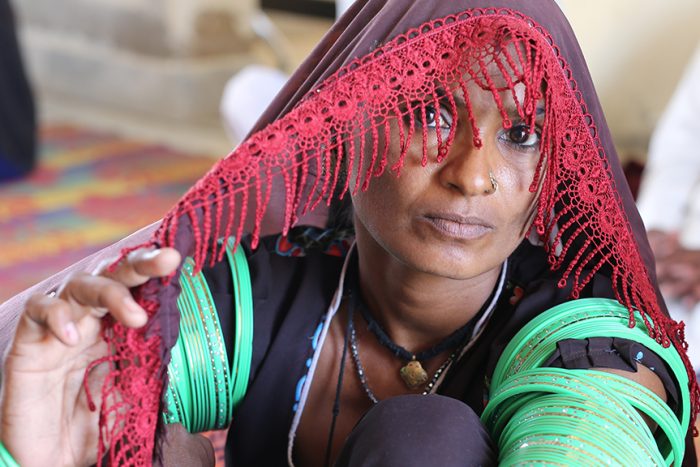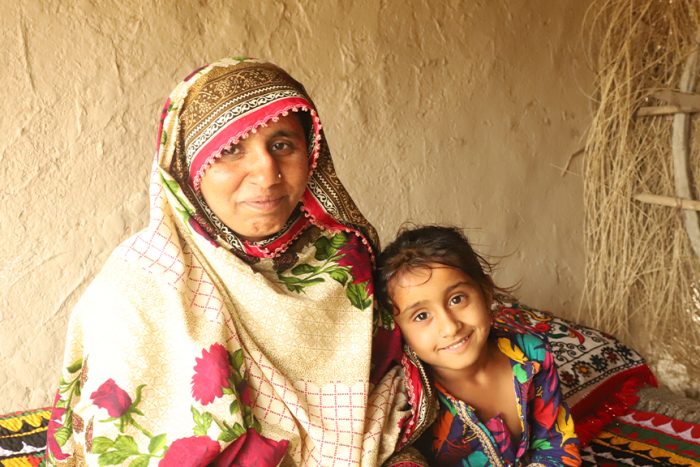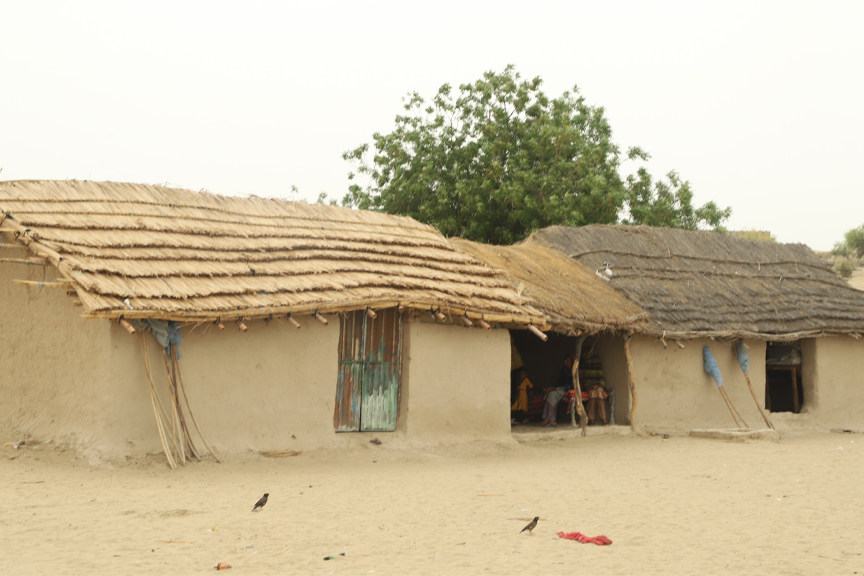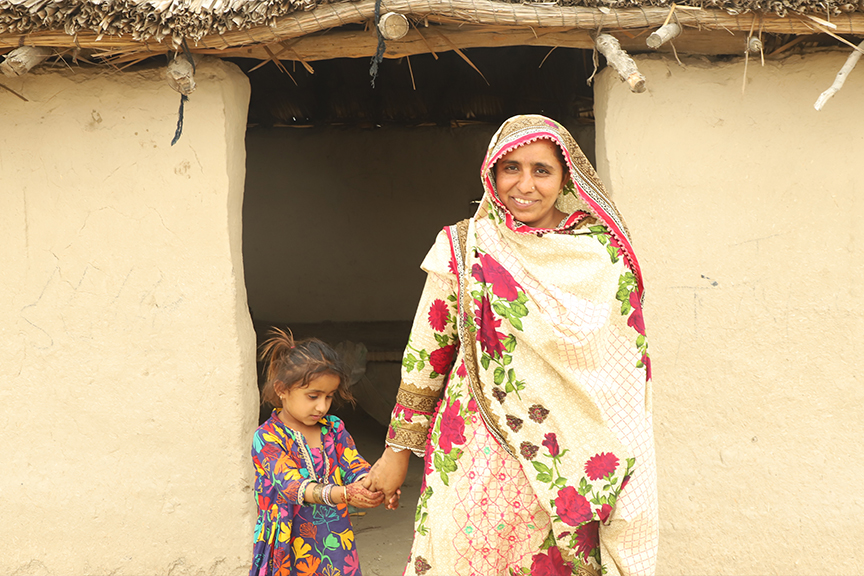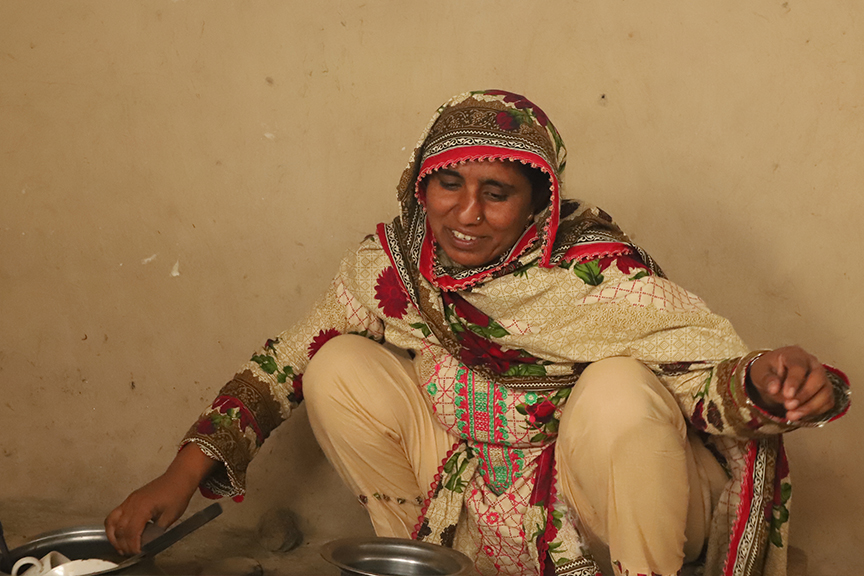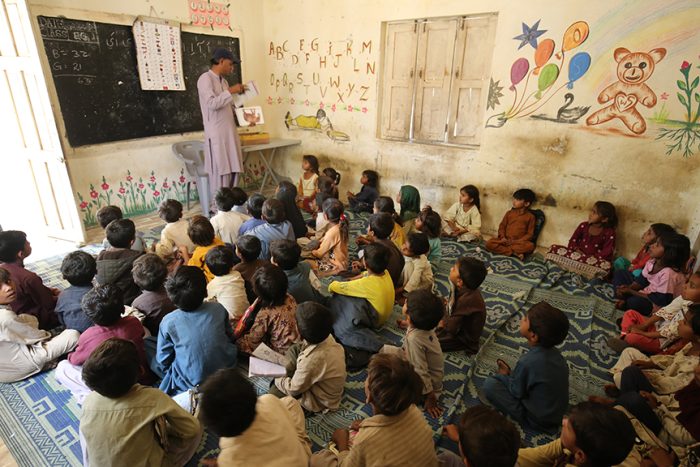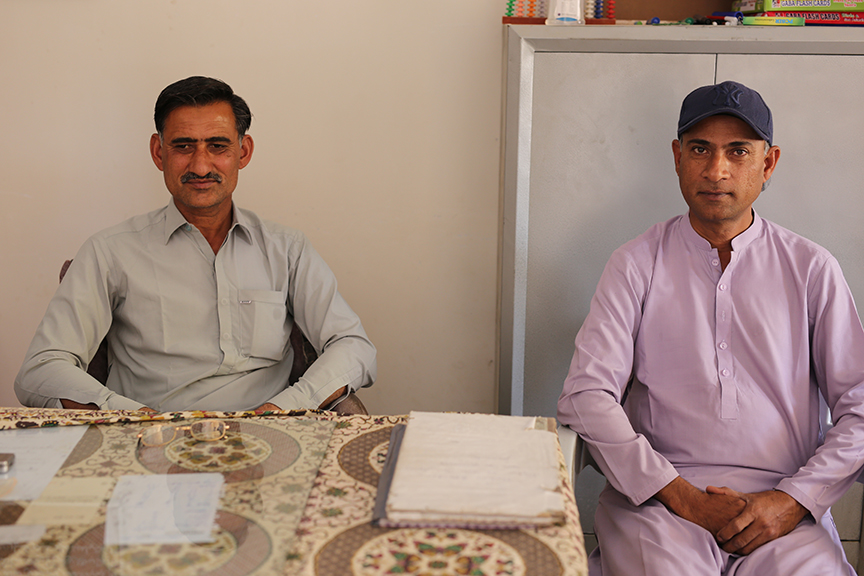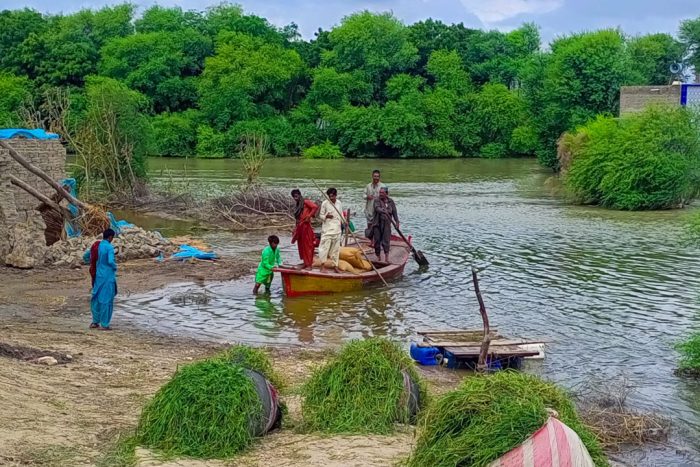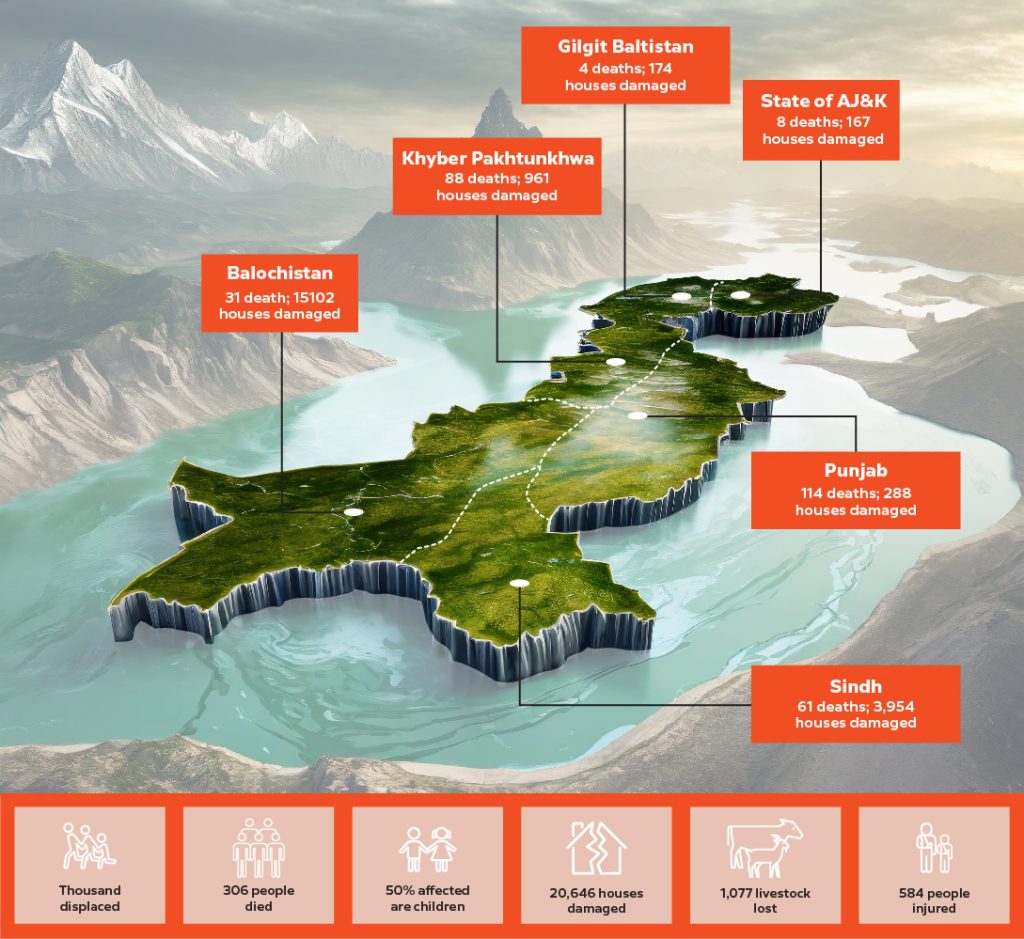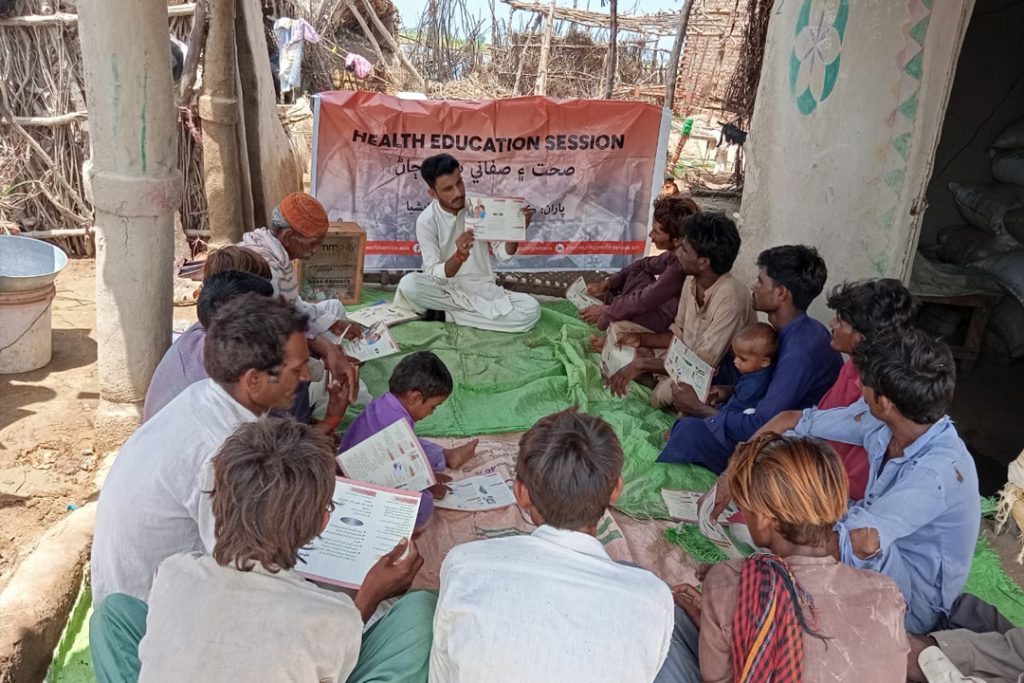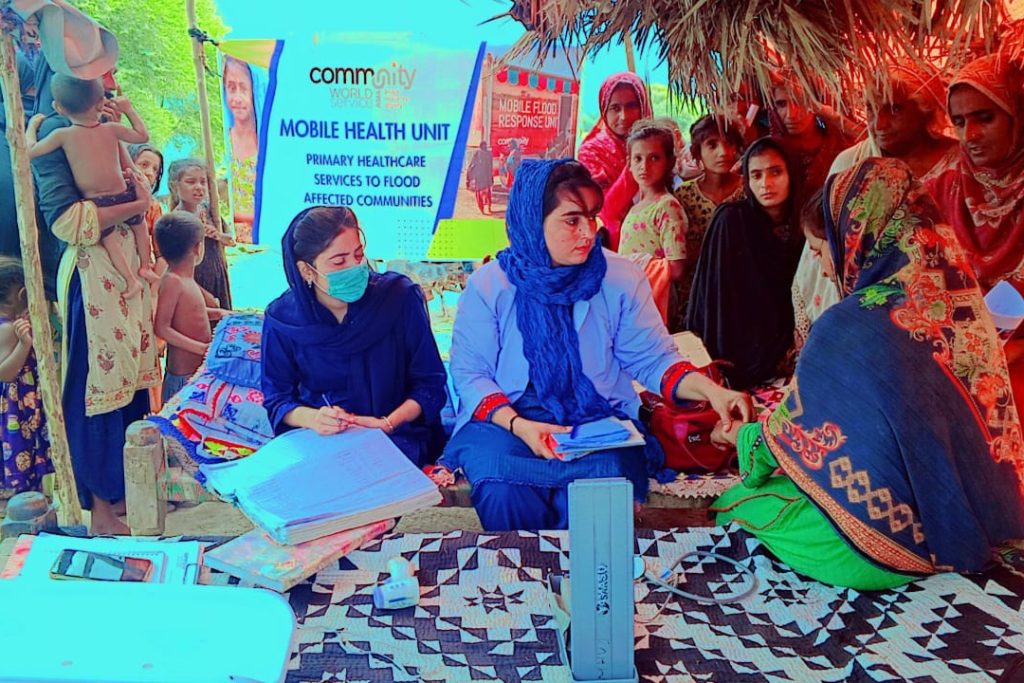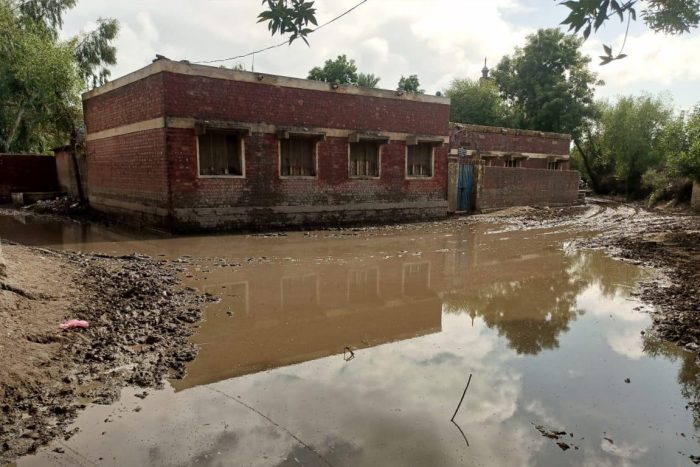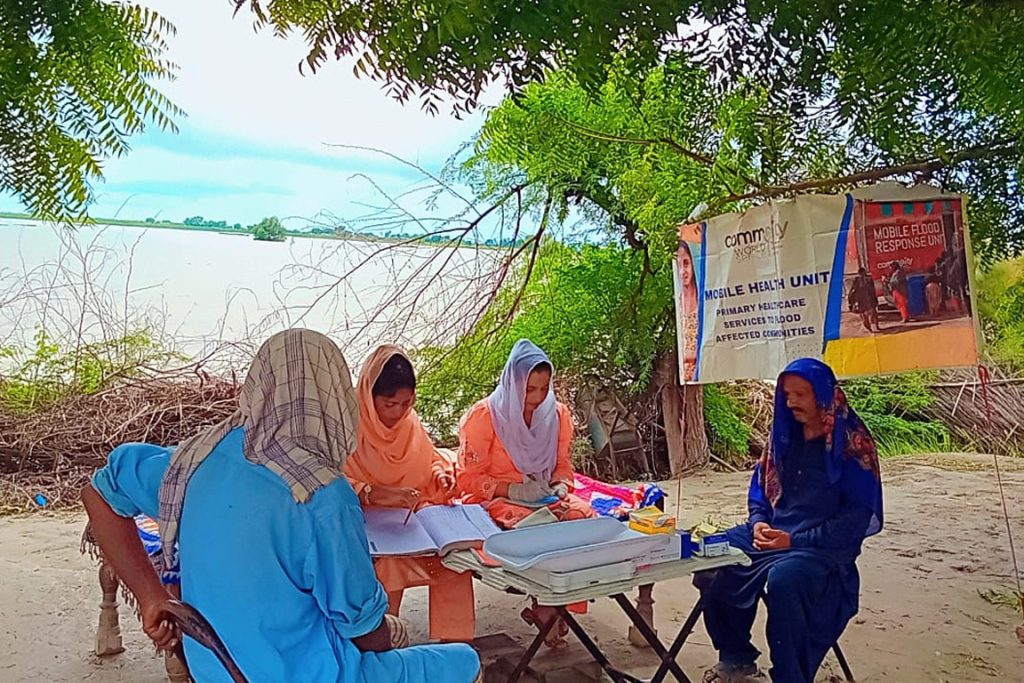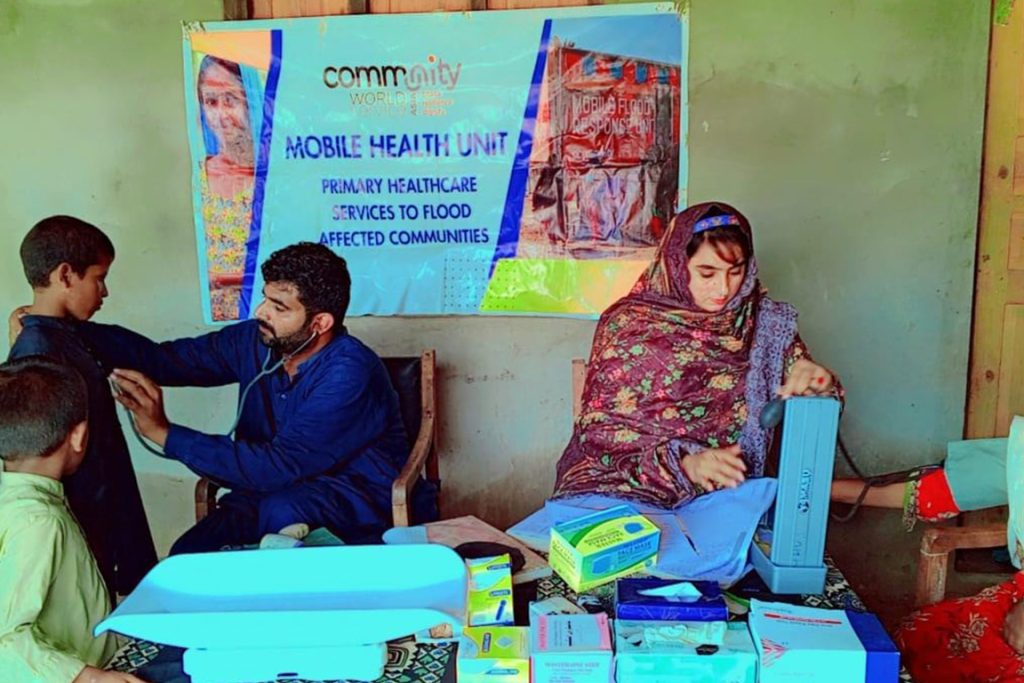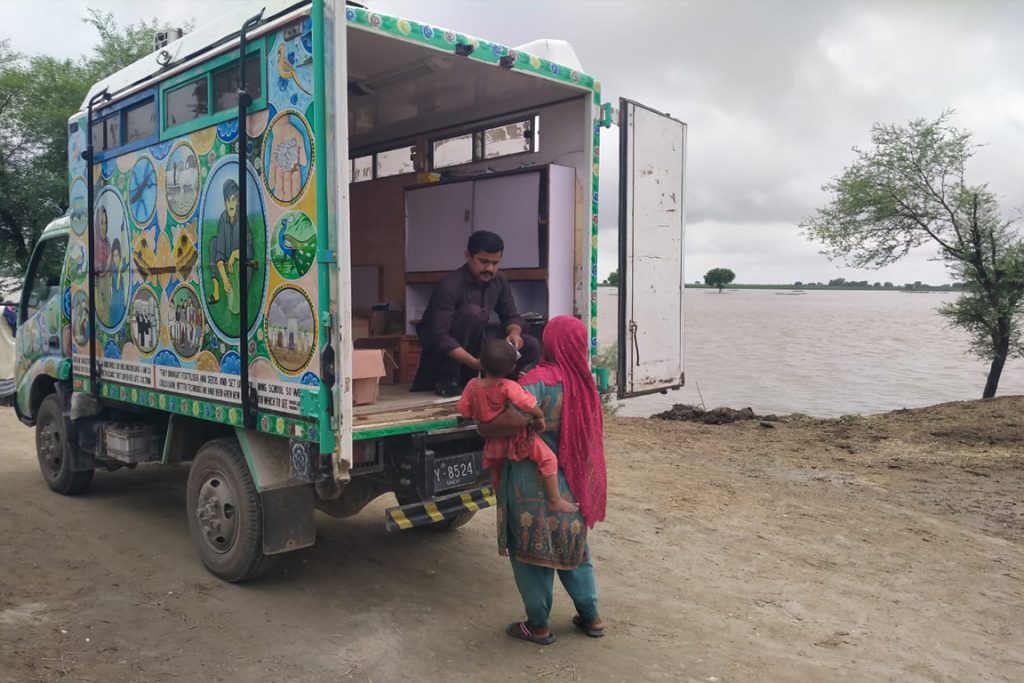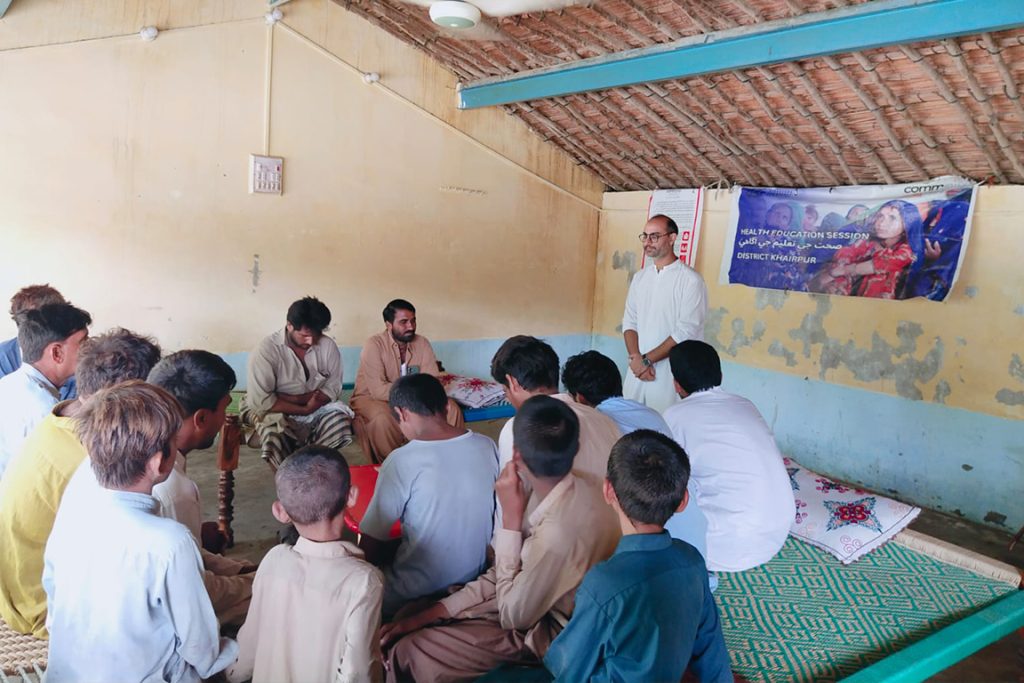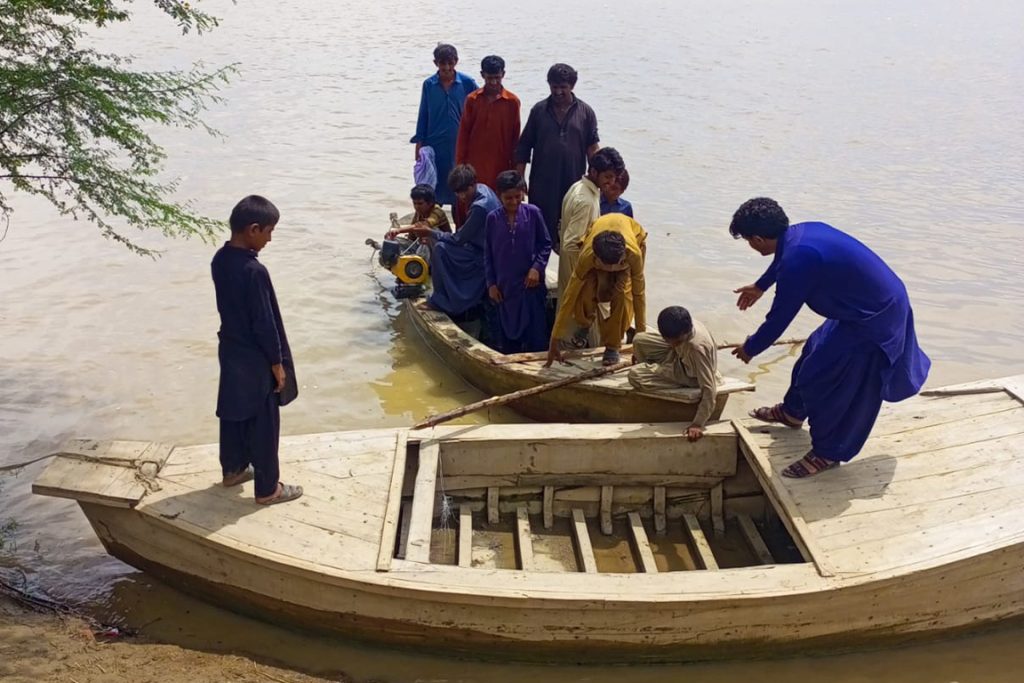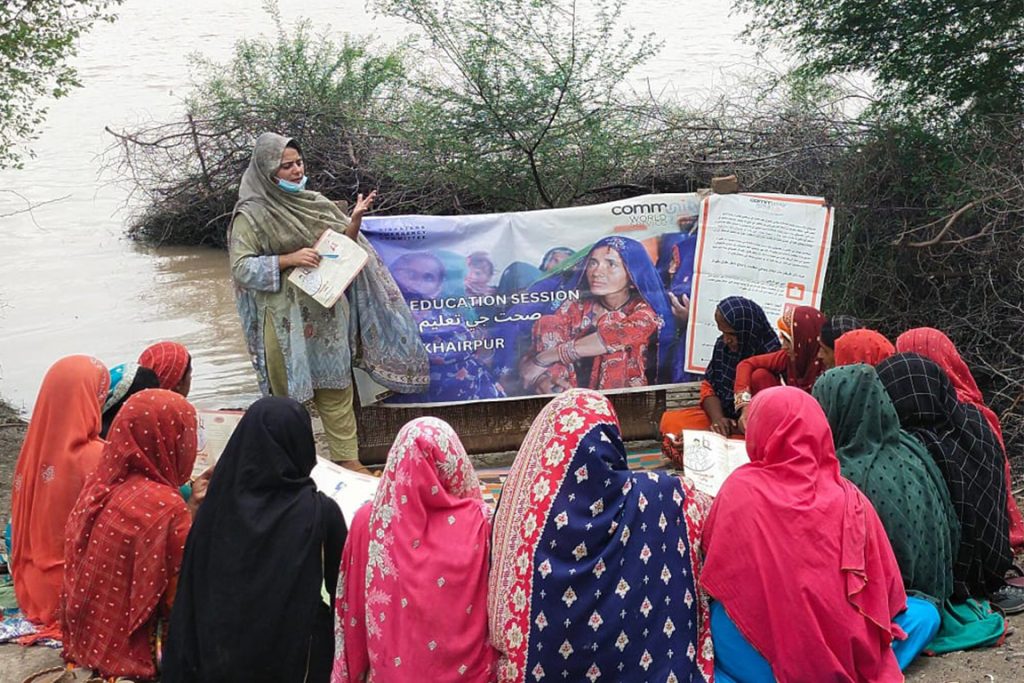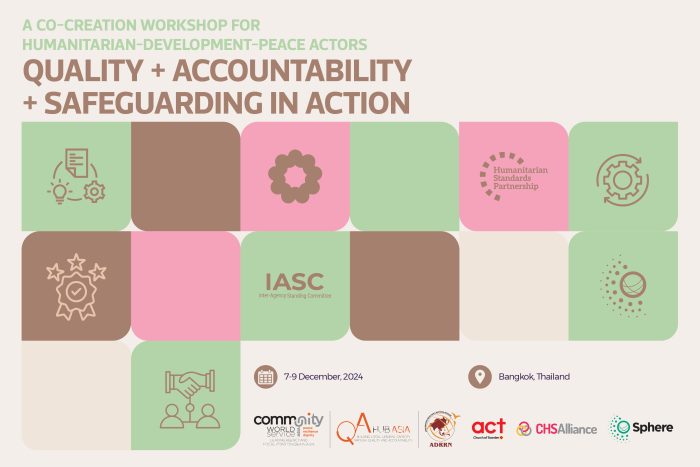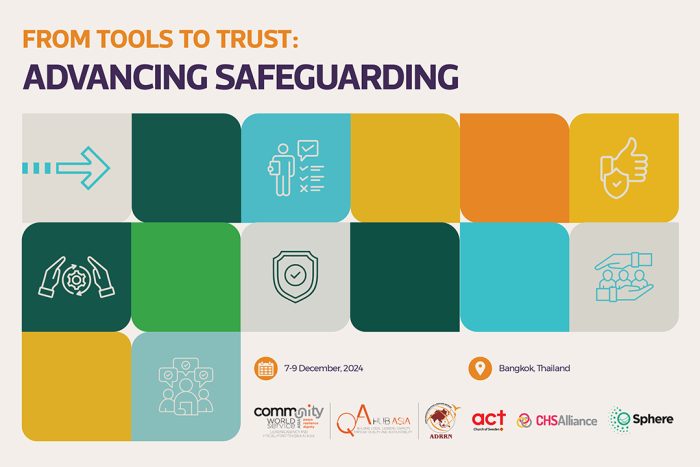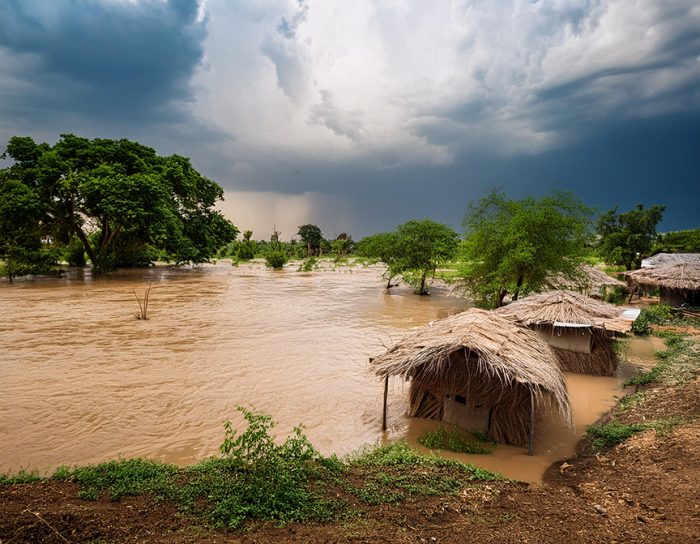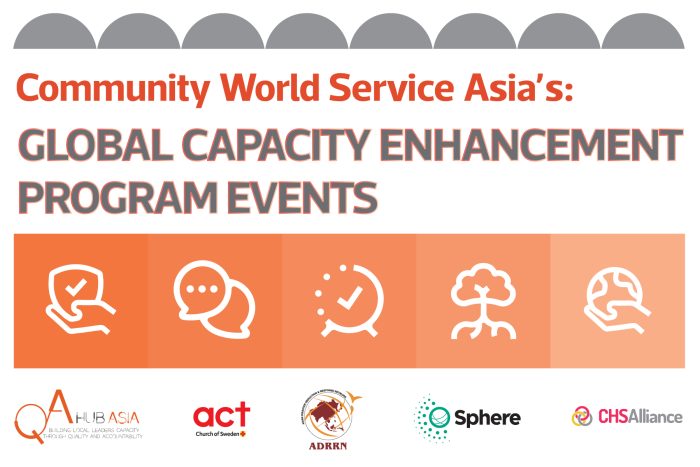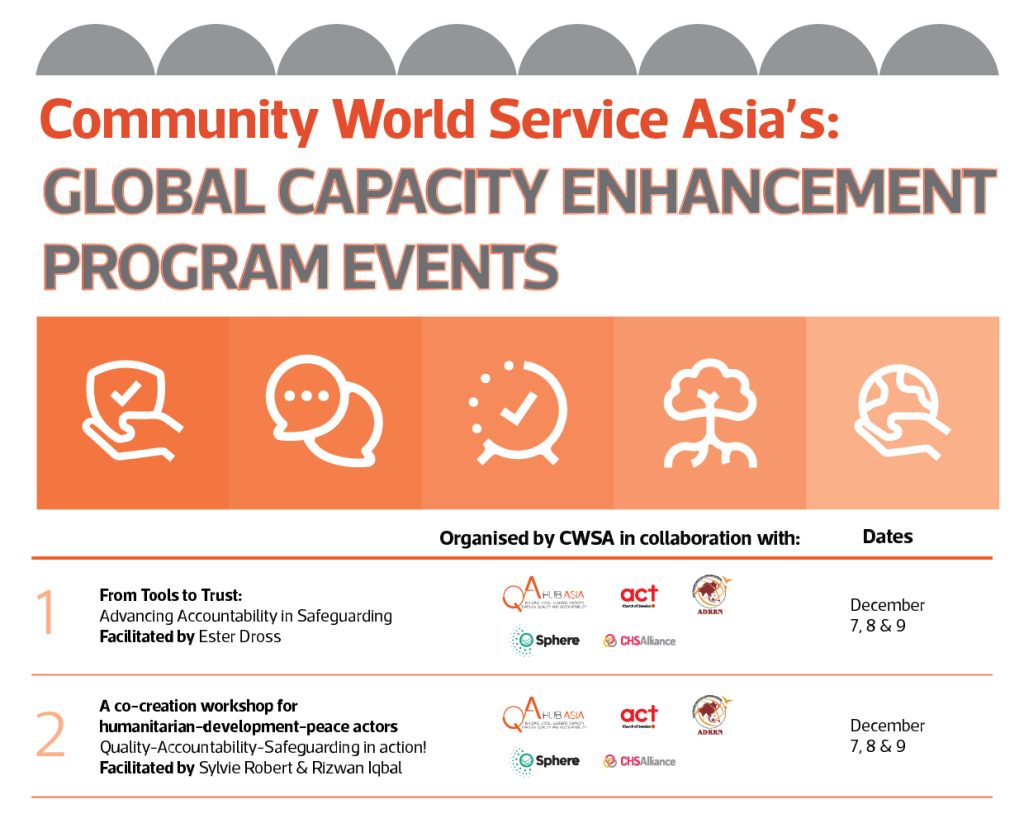In village Rohiraro, Umerkot, Mauta is a remarkable and outspoken woman. Originally from a village near Chhachro, she was married into Rohiraro, where she and her husband raised six sons. Though she did not receive formal education herself, Mauta was determined to ensure her sons received an education. She sent them through government primary, middle schools and high school, all the way to the twelfth grade. She laughingly admits she thought this was the highest level of education because she had no idea about university degrees. When her eldest completed what she believed was the “ultimate” level of schooling and returned to the village, Mauta set him to work looking after their livestock. With nearly 30 goats, Mauta considered herself well-off and believed her educated son was gainfully employed helping with the animals.
In 2020 when Community World Service Asia (CWSA) began its interventions1 in Rohiraro, Mauta became a very active member of the Village Management Committee set up to ensure community ownership and engagement in the project. She gained a new perspective through her involvement, including the benefits of family planning, which she enthusiastically promoted within the community through door-to-door campaigns, even accompanying women to nearby government facilities to help them plan childbirth.
“It was for the first time I learned that twelve grades of education is no education at all. That there are universities which provide even higher learning,” she says. Determined to send her eldest son to university, she faced opposition from her husband. He is an unskilled labourer with no formal education. He believed that they could not afford the expense of sending their sons to expensive educational institutions. Mauta disagreed, insisting that their livestock could be used to fund her sons’ education. “What is the point of having a large livestock if it could not send our sons to college?” she remarked. She sold some goats to raise PKR 40,000 (approx. USD 144) for her son’s admission to Sindh University in Hyderabad. A year later, she sold more animals to cover his annual fees.
She also enrolled her second son in Sindh University and her third in Allama Iqbal Open University in Umerkot. The younger two are in the intermediate programme post-matriculation and also aspire to attend university. Mauta may not understand what her sons are studying, but she takes pride in the fact that they can speak English and have even taught her to write her name in Sindhi.
“My youngest son is in grade nine and also keen to go to university. He wants me to pay for a private tutor to help him in his studies so that he can make the grade for university,” she says. She shared that traditionally boys in Rohiraro dropped out after matriculation, but Mauta’s decision to send her sons to university has inspired other families to prioritise their sons’ education. According to her, at least 20 other boys from the village are now attending colleges in Umerkot.
“Since my boys started university, everyone began to look at me with awe and reverence,” says Mauta. Although she has no daughter, she insists she would not have held a girl back from education even if it meant selling her livestock. This is very brave of her given she is from a remote village in the Umerkot desert.
To keep her sons in university, Mauta has taken up sewing, using her skills to meet the day-to-day household expenses. In addition to minding her livestock, she sews women’s dresses on order.
What motivated her to take such a bold step after the first few VMC meetings? Mauta credits the visiting social mobilisers whose eloquence impressed her. She wanted her sons to be like them.
When asked about her proudest moment since her sons began higher education, Mauta does not hesitate. She says it was not about her sons but her own growth. At the recent International Education Day celebrations, organised by CWSA and Act for Peace (AFP), in her village, Mauta delivered a speech advocating for education in front of a crowd. The pride she felt came not from the attentive audience but from the applause that followed.
This was the first time she had ever given a speech, and Mauta believes that while her sons’ education has progressed, so has her personal development.
- Under the Health-Education Project supported by Act for Peace ↩︎




